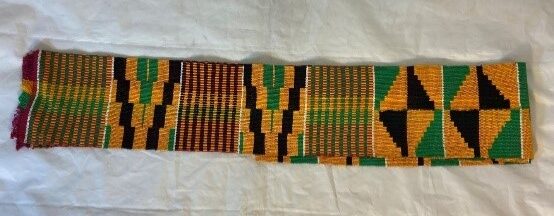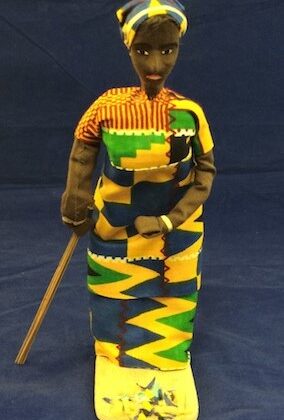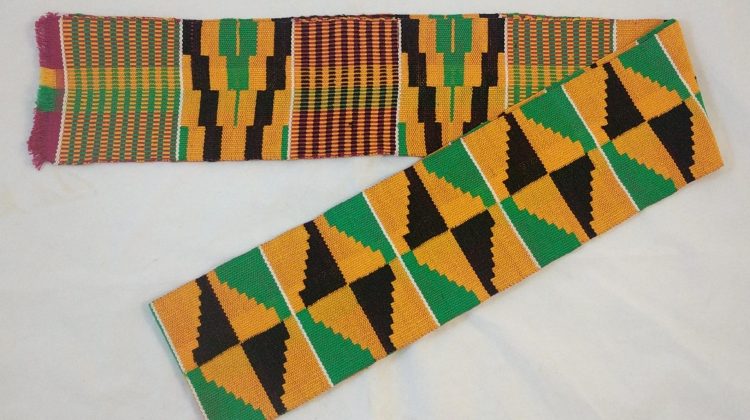The Asante are a culture living primarily in the Akan region of Western Coastal Africa, in what are now the countries of Ghana and Cote d’Ivoire. Although they have a matrilineal society, with the line of descent traced through women, the Asante have a monarchy style of government that is predominantly—but not exclusively--ruled by men. The Asante people use two different … [Read more...] about Asante Art: Researched by Amanda Steimel
This cloth figure represents a 20th-century Ghanaian woman doing chores, sweeping up the mess that is in front of her. The most interesting aspect of this figure, however, is that she wears a dress and head covering of fabric printed to represent the famous Asante cloth known as Kente. Like the Korhogo cloth also in this exhibit, Kente cloth is one of the few textiles in … [Read more...] about Figure of a Sweeping Woman wearing Kente Cloth: Researched by Hannah Harmon
Textiles are an important artform in many African cultures. While weavers in some cultures are traditionally female, as among the Basotho of southern Africa, in other cultures men traditionally do the weaving, as among the Asante of Western Coastal Africa and the Senufo of Western Africa. The weavers do use different types of looms, however; women tend to weave on upright, … [Read more...] about African Textiles: Researched by Hannah Woolridge
As in most cultures, in African cultures, symbols of status are used to make distinctions among classes or other groups of people. The owners of status objects are recognized as powerful, wealthy, or high-ranking. In Africa, high-status individuals include people with hereditary power such as royalty; spiritual leaders; high-ranking military or civic leaders; prosperous … [Read more...] about African Status Symbols: Researched by Emily McClain and Zoë Pixler




